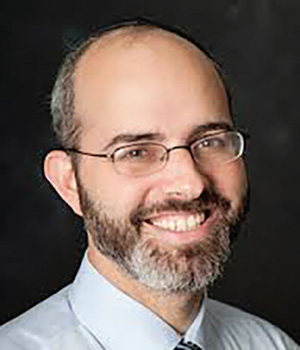
May these words of Torah serve as a merit le’iluy nishmat Menachem Mendel ben Harav Yoel David Balk, a”h, and Meirah Chayah Nechamah Berachah, a”h, bat David Mordechai Fishel, sheyichyeh.
This week we learned Chullin 38. These are some highlights.
Must a scholar treat a greater scholar with the reverence due a teacher?
Gemara Sanhedrin (100a) teaches that Geichazi was punished for disrespecting his teacher and calling him by his name. Apparently, a Torah student must show reverence to his instructor by referring to him with an honorific title. What about a scholar who is not your teacher but who is greater than you? Do you need to call him by an honorable title? Do you need to show every greater Torah giant the respect owed to a teacher? Shu”t Maharik (shoresh 169 s.v. ve’asher) deals with this question and he seeks to resolve it based on our Gemara.
Shu”t Maharik was asked a question about excommunication. A man who knows that he is being wrongly placed in cherem, excommunication, is allowed to declare, “Adarabba, the opposite is true and the ban is placed on those who are seeking to place me in social purgatory.” A scholar had received notice that a greater scholar, who was not his teacher, had declared a cherem upon him. The scholar wanted to know if he could declare “Adarabba.” A student being mistakenly placed into niduy by his teacher cannot declare that the opposite should happen for he may not disrespect his teacher and try to impose a ban on his teacher. What about when the ban is coming from a greater scholar who is not the teacher? Must the lesser Torah expert give reverence and therefore he could not declare “Adarabba,” or maybe it is only to a teacher that one may not seek to impose a cherem?
Maharik points out that our Gemara proves that there is no obligation on a Torah scholar to show reverence to a greater Torah scholar as he would show to his teacher. Our Gemara relates a conversation that Shmuel had with the students of Rav. Shmuel had asked them what Rav had taught in regard to slaughtering a very weak animal. When Shmuel heard what Rav had said, he said, “Did we need Abba to teach us such a lesson?” Shmuel was a lesser scholar than Rav. He had a student/peer relationship with Rav. According to the Aruch, Abba was Rav’s personal name and Shmuel used it, for as a student/peer he would refer to Rav by his name as a display of endearment. Why was Shmuel not worried that he would get punished as Geichazi was? Maharik derives from here the principle that it is only with your Torah teacher that you must show great reverence and not use his name, but you are allowed to mention the name of a scholar who is greater than you. You are not obligated to accord great respect to every scholar who knows more than you do. Therefore, if a great scholar, who was not the teacher, were to excommunicate a lesser scholar and the smaller sage was certain that it was an unfounded ban, the minor giant would be allowed to declare “Adarabba” and impose the ban on the greater scholar.
What is the practical halacha? Shulchan Aruch (Yoreh Dei’ah 244:10) rules that a scholar who is exceptionally great in his wisdom has the status of your primary Torah teacher, rebbe muvhak, and is to receive great honor and regard even if you never learned anything from him. Rama explains that this refers to a person who is the giant of the generation and known throughout the generation as such a great giant. Shach (s’k 2) adds that he must be exceptionally greater than all the other sages of the era; then he has the status of rebbe muvhak to all. However, if a sage is not the greatest Torah giant of the generation, he merely knows more than you, you do not need to show him great reverence and respect. Shach does record that the Rama disagrees and feels that any sage who knows more than another sage needs to be shown great respect by the lesser scholar, even if the lesser scholar was never his student and never learned anything from him. (Mesivta)
By Rabbi Zev Reichman
Rabbi Zev Reichman teaches Daf Yomi in his shul, East Hill Synagogue.










